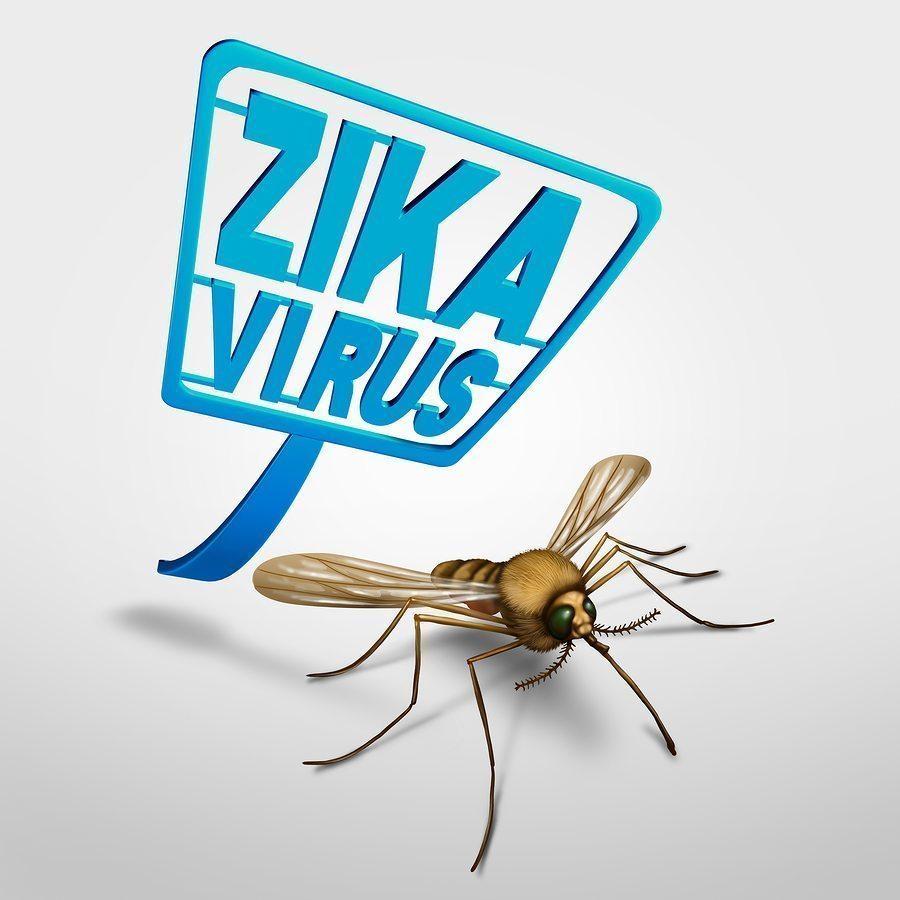Should Houstonians Be Worried About the Zika Virus?

Houston, thanks to its geographical location and weather, is at risk from the Zika virus. There are also two major airports, which between them transport around 40 million people a year between the Caribbean, Latin America and the US. As if that’s not enough, both Zika-carrying types of mosquito (the Aedes aegypti and the Aedes albopictus) are at home here all year round.
Most of us associate mosquitos with evening and night bites, but both these types of mosquito are active during the day and are just as likely to fly around at ankle height rather than buzz noisily around your ears. You can be bitten before you even realize they’re in your vicinity.
Where Mosquitos Live
Like all mosquitos, they love standing water and will lay eggs in the smallest of pools. An empty margarine tub or a child’s plastic toy are just as attractive to them as an ornamental pool or other body of water. One of the biggest dangers comes from dumped household or industrial waste.
While this can present more of a problem in poorer neighborhoods, more wealthy areas are just as likely to provide suitable homes for virus carrying mosquitoes. They will live in any small pool of water, such as drip pans in refrigerators or air conditioners.
As of June, 2016, 11 cases of Zika were identified in Houston. Most infections happened while traveling to such places like Honduras or the U.S Virgin Islands. In August 2016, the Houston Press reported the first Zika related death in Harris County, although the virus was picked up during travel.
Zika Virus Symptoms
Zika virus symptoms are generally mild and mimic the symptoms of other diseases, so many people don’t even realize they have it. It’s estimated that only one person in five of those infected will actually feel ill. Also, because the symptoms are mild, people often don’t seek medical care. Some of the symptoms include:
- Joint pain.
- Fever.
- Rash.
- Conjunctivitis.
- Other symptoms similar to flu such as headaches or muscle aches.
If you have recently travelled to any of the areas known to be infected with the Zika virus, you should see your healthcare provider if any of the above symptoms manifest themselves. The biggest danger is to pregnant women since the virus can cause birth defects.
Zika Virus Treatments
Testing for the Zika virus is straightforward, needing only a blood or urine sample. Unfortunately, there is neither vaccine nor any specific treatment. It is advised that you:
- Reduce pain or fever with medication such as Tylenol or paracetamol.
- Avoid non-steroidal anti-inflammatory drugs (NSAIDS) such as aspirin if there is any chance you have dengue. If you suspect an infection, speak to a doctor first rather than self-dosing or diagnosing.
- Stave off dehydration by drinking plenty of fluids.
You should take medical advice if you are already taking medication for a separate condition.
Avoiding the Zika Virus
The best way of preventing Zika virus infection is to protect yourself from mosquito bites during the day as well as at night:
Personal Protection:
- Use a repellent — choose ones with active ingredients such as DEET, picaridin, icaridin and bayrepel, which are approved by the Environmental Protection Agency (EPA). Follow instructions on the packaging, don’t spray it under clothes, and apply sun creams you’re also using, first.
- Protect babies and infants with clothing that covers their arms and legs.
- Wear long sleeves and long pants. You can also treat clothing with permethrin or buy clothing that is already treated.
Protecting Your Home
- Use air-conditioning whenever possible.
- Use a mosquito net if you’re exposed to the natural air.
- Screen doors and windows, and repair any holes that appear or replace the screens.
- Make it a weekly habit to check for standing water around the home. Items to check include flowerpots, trash containers, buckets, toys, pools or anything that could hold water such as discarded tires. If you have birdbaths, empty and scrub them each week, and check the lids on rain barrels or cisterns to make sure they’re tight.
- Mosquitos will lay eggs any place they find standing water, either inside or outside the home. You can cover vents or plumbing pipes with wire mesh that’s smaller than adult mosquitos, and treat larger pools of water not meant for drinking with larvicide.
Stay Safe During Sex
Because Zika can travel from person to person through any kind of sex, it’s advisable to always use condoms if you live in an area where there is Zika.
The body will eventually fight off the virus, but it is especially dangerous to unborn babies. If you’re pregnant, doctors advise using condoms for the entire pregnancy, and for couples who are planning a pregnancy to get their doctor’s advice.
Men who have Zika symptoms should abstain or use condoms for at least six months, and women should do the same for at least eight weeks.
Houston is not seeing a Zika epidemic, but it is around. Everyone needs to be aware of the dangers and know how to protect themselves and others.




